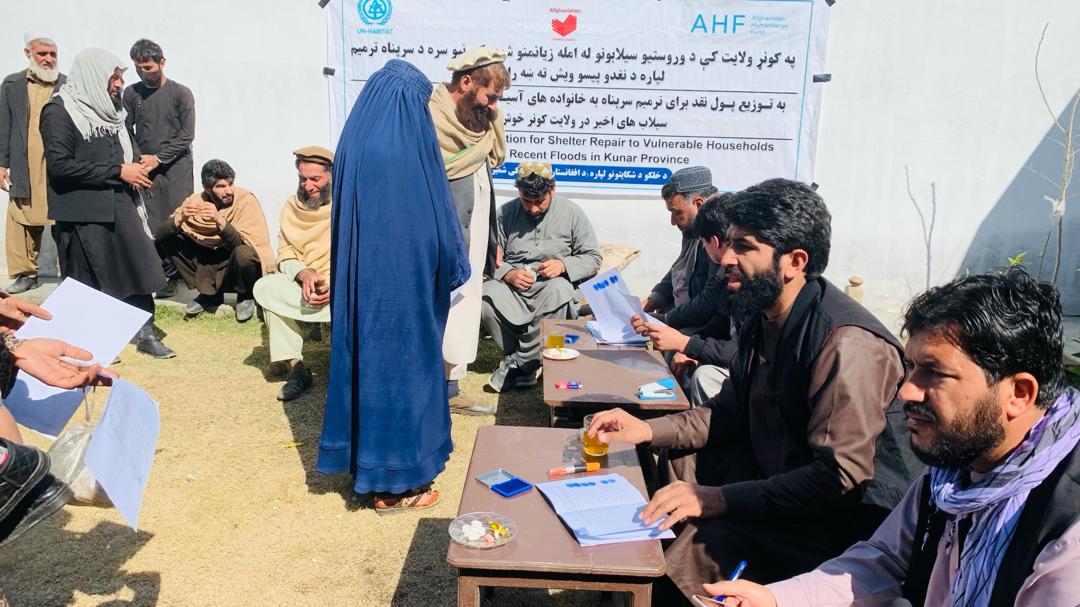Kabul, Afghanistan – As of mid-June, the 2024 Afghanistan Humanitarian Needs and Response Plan (HNRP) is grappling with a significant funding deficit, receiving only $615.7 million, or 20.1 percent of the requested amount, according to a report by UN’s aid coordination office.
The United Nations Office for the Coordination of Humanitarian Affairs (OCHA) says that “this shortfall occurs as humanitarian needs in Afghanistan intensify due to severe food insecurity, malnutrition, and other crises compounded by decades of conflict and political instability.”
OCHA reports that persistent challenges include “widespread explosive ordnance contamination, recurrent natural disasters, outbreaks of communicable diseases, and the effects of climate change.”
Compounding these issues are restrictive policies imposed by the Taliban since August 2021, which have significantly limited women and girls’ access to services and their participation in public life, OCHA said.
Recent natural disasters have exacerbated the situation, OCHA said.
It noted that over the past two months, “flash flooding triggered by three years of drought-like conditions and spring rainfall has affected 120,000 people, causing significant human, agricultural, and livestock losses.”
Additionally, around 25,000 families displaced by three earthquakes in Herat Province last October remain in temporary shelters. Since September 2023, more than 610,000 Afghan returnees from Pakistan have arrived in already vulnerable host communities.
The humanitarian response faces a staggering funding shortfall of $2.45 billion, with critical gaps amounting to $1.1 billion, excluding $238.3 million reported to be in the pipeline, OCHA said.
According to OCHA, this deficit has already “prevented millions from accessing essential healthcare services and nutritional support.” Funding shortages have also hindered the response to acute watery diarrhea and cholera, delayed shelter support for disaster-affected households, and led to partial implementation of child protection services.
OCHA said that without additional funding, life-saving programs such as mobile health and nutrition teams, in-patient treatment for severely malnourished children, psychosocial and protection support for children, mine action, food and livelihood assistance, and provision of dignity kits for women and girls are at risk of further reduction or closure. OCHA warns that these funding gaps “risk further reduction and closure of critical life-saving programs.”
The funding crisis also affects the capacity to address safeguarding issues such as sexual exploitation and abuse, and inclusive programming crucial for women, girls, and people with disabilities, OCHA said.
OCHA highlighted that “restrictions on Afghan women working for the United Nations and non-governmental organizations, along with the non-renewal of licenses for organizations of persons with disabilities, have further complicated the situation.”
This analysis underscores the urgent need for early, unrestricted, and multi-year funding from donors to allow humanitarian actors to respond effectively and equitably. OCHA emphasizes the need for “enhanced international engagement with the De-facto Authorities to foster a more enabling environment for humanitarian efforts.”
The ongoing reconciliation of reported funding streams aims to provide a clearer picture of the financial landscape and guide donor decisions in addressing the critical needs of the Afghan population. OCHA concludes that “as the crisis deepens, timely and sustained support from the international community is essential to mitigate the humanitarian catastrophe unfolding in Afghanistan.”





